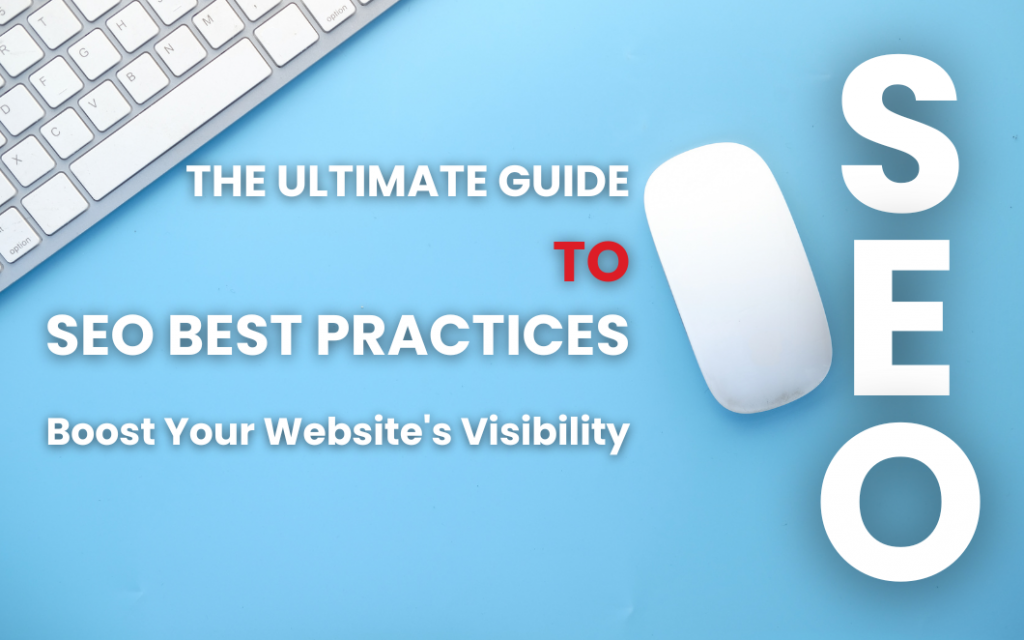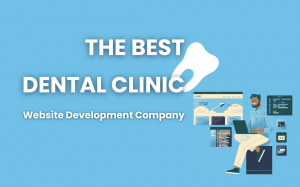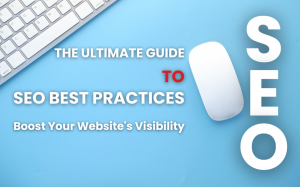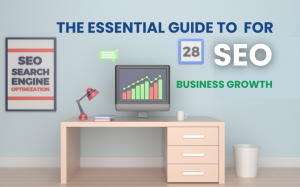The Ultimate Guide to SEO Best Practices: Boost Your Website's Visibility

-
The Ultimate Guide to SEO Best Practices: Boost Your Website's Visibility
- The Ultimate Guide to SEO Best Practices: Boost Your Website's Visibility
- The Ultimate Guide to SEO Best Practices: Boost Your Website's Visibility
- FAQ
- Conclusion Of The Ultimate Guide to SEO Best Practices
- How to Choose A Web Development Company
- The Best Dental Clinic Website Development Company
- The Essential Guide to SEO for Business Growth
- The Essential Guide to SEO for Business Growth
The Ultimate Guide to SEO Best Practices: Boost Your Website's Visibility
In today’s digital age, having a strong online presence is crucial for the success of any business or website. With millions of websites competing for attention, it’s essential to ensure that your website stands out from the crowd. One of the most effective ways to improve your website’s visibility and attract more organic traffic is through Search Engine Optimization (SEO). SEO is the process of optimizing your website to rank higher in search engine results pages (SERPs), making it easier for users to find you online. In this ultimate guide to SEO best practices, we’ll cover everything you need to know to enhance your website’s SEO and drive more traffic to your site.
- Understanding Keywords: Keywords are the foundation of SEO. These are the terms that users type into search engines when looking for information. Conduct thorough keyword research to identify relevant keywords for your niche. Use tools like Google Keyword Planner or SEMrush to discover high-volume keywords with low competition. Incorporate these keywords naturally into your website’s content, including titles, headings, meta descriptions, and body text.
- Optimizing On-Page Elements: On-page optimization involves optimizing individual web pages to improve their search engine rankings. Focus on optimizing key on-page elements such as title tags, meta descriptions, headings (H1, H2, H3), and URL structures. Ensure that your title tags and meta descriptions are compelling and include relevant keywords to improve click-through rates from search results.
- Creating High-Quality Content: Content is king in the world of SEO. Creating high-quality, informative, and engaging content not only attracts visitors but also encourages other websites to link back to yours. Aim to produce original content that provides value to your audience. Incorporate multimedia elements such as images, videos, and infographics to enhance the user experience.
- Improving Website Speed and Performance: Website speed is a critical ranking factor for search engines. A slow-loading website not only frustrates users but also affects your search engine rankings. Optimize your website’s performance by minimizing HTTP requests, optimizing images, leveraging browser caching, and using a Content Delivery Network (CDN) to deliver content faster to users across the globe.
- Mobile Optimization: With the majority of internet users accessing websites through mobile devices, mobile optimization is no longer optional—it’s a necessity. Ensure that your website is mobile-friendly and responsive across all devices and screen sizes. Google’s Mobile-First Indexing prioritizes mobile-friendly websites in search results, so optimizing for mobile is essential for SEO success.
- Building Quality Backlinks: Backlinks are links from other websites that point back to your site. They are a crucial ranking factor for search engines, indicating the authority and credibility of your website. Focus on building high-quality backlinks from reputable websites within your industry. You can acquire backlinks through guest blogging, outreach campaigns, social media promotion, and creating shareable content.
- Optimizing for Local SEO: If your business serves a local audience, optimizing for local SEO is essential to ensure that your website appears in local search results. Claim and optimize your Google My Business listing, ensure consistent NAP (Name, Address, Phone Number) information across all online directories, and encourage satisfied customers to leave positive reviews.
- Monitoring and Analyzing Performance: SEO is an ongoing process that requires continuous monitoring and analysis. Use tools like Google Analytics and Google Search Console to track your website’s performance, monitor keyword rankings, identify areas for improvement, and measure the effectiveness of your SEO efforts. Regularly review your analytics data to make informed decisions and adjust your SEO strategy accordingly.
- Staying Updated with Algorithm Changes: Search engine algorithms are constantly evolving, with Google making hundreds of changes each year. Stay updated with the latest algorithm updates and SEO trends to ensure that your website remains optimized for search engines. Follow reputable SEO blogs, attend industry conferences, and participate in online forums to stay informed about the latest developments in the world of SEO.
- Prioritizing User Experience (UX): Search engines prioritize websites that provide a positive user experience. Ensure that your website is easy to navigate, with intuitive navigation menus and clear calls-to-action. Optimize for readability by using legible fonts, appropriate font sizes, and sufficient white space. Provide valuable content that meets the needs of your target audience, and prioritize user satisfaction above all else.
FAQ
Keywords are vital in SEO because they help search engines understand what your website is about and match it with user queries. To identify relevant keywords, businesses can conduct thorough keyword research using tools like Google Keyword Planner or SEMrush. These tools provide insights into high-volume keywords with low competition, allowing businesses to tailor their content to match what users are searching for.
Businesses should focus on optimizing key on-page elements such as title tags, meta descriptions, headings (H1, H2, H3), and URL structures. Compelling title tags and meta descriptions containing relevant keywords can improve click-through rates from search results, while well-structured headings make content easier to understand for both users and search engines.
High-quality content is crucial for SEO success because search engines prioritize websites that provide valuable and relevant information to users. When you create content that is informative, engaging, and addresses the needs of your audience, it increases the likelihood of users staying on your website longer, reducing bounce rates, and improving overall user experience. Additionally, high-quality content is more likely to be shared on social media platforms and linked to by other websites, which can significantly impact your website’s authority and credibility in the eyes of search engines. Ultimately, quality content attracts organic traffic, enhances your website’s visibility, and improves its ranking in search engine results pages (SERPs).
- Optimize images by compressing them without compromising quality.
- Minimize HTTP requests by reducing the number of elements on each page.
- Leverage browser caching to store resources locally and decrease loading times for returning visitors.
- Use a Content Delivery Network (CDN) to distribute content across multiple servers worldwide, reducing latency.
- Minimize code by eliminating unnecessary scripts, CSS, and HTML, and using efficient coding practices.
- Enable GZIP compression to reduce file sizes and speed up data transfer.
- Reduce server response time by upgrading your hosting plan or optimizing server configurations.
- Implement lazy loading for images and videos to defer loading until they’re needed, improving initial page load times.
- Optimize CSS and JavaScript files by combining them, minifying them, and loading them asynchronously.
- Regularly monitor website performance using tools like Google PageSpeed Insights or GTmetrix and make necessary adjustments.
- Mobile optimization is important for SEO because the majority of internet users now access websites through mobile devices. Google’s Mobile-First Indexing prioritizes mobile-friendly websites in search results, meaning that websites optimized for mobile devices are more likely to rank higher. Additionally, with the rise of mobile browsing, providing a seamless and responsive experience for mobile users enhances user satisfaction, leading to higher engagement and lower bounce rates, which are favorable signals to search engines. Therefore, mobile optimization is essential for maintaining and improving search engine rankings and overall website visibility.
In conclusion, implementing SEO best practices is essential for improving your website’s visibility and attracting more organic traffic. By understanding keywords, optimizing on-page elements, creating high-quality content, and focusing on factors such as website speed, mobile optimization, backlinks, local SEO, and user experience, you can enhance your website’s search engine rankings and drive more targeted traffic to your site. Remember that SEO is an ongoing process that requires dedication, patience, and continuous effort, but the rewards of increased visibility and traffic are well worth the investment.




